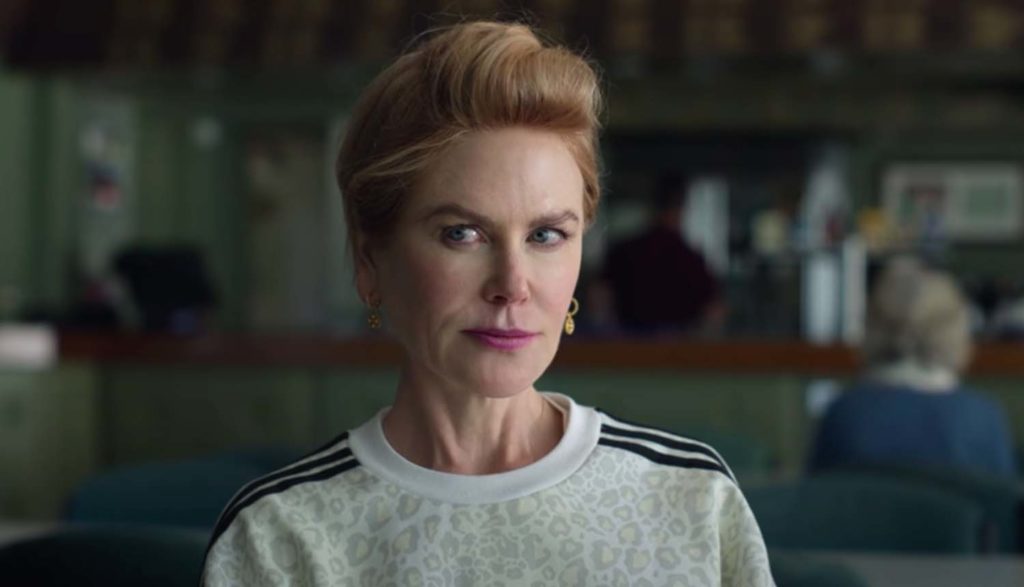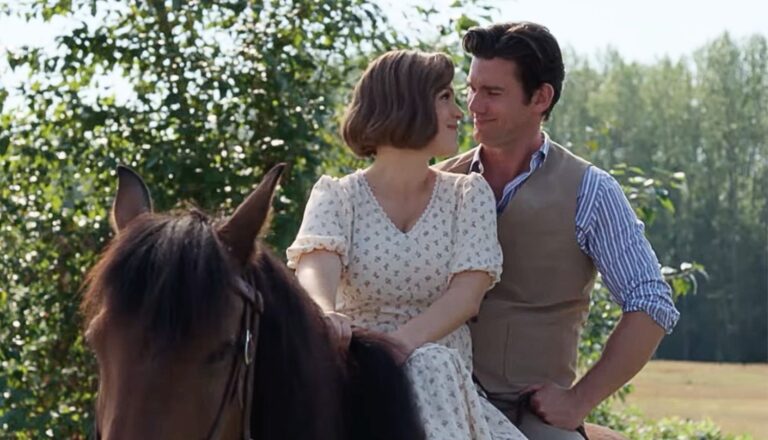
Best Medicine
In Fox’s Best Medicine, uptight city surgeon Dr. Martin Best moves to small-town Port Wenn and learns to get along with its quirky residents.

“I am woman, hear me roar.”
These lyrics from the 1972 Helen Reddy song “I Am Woman” may not serve as the inspiration for Apple TV+’s anthology series, but they certainly serve as a theme.
Each episode tells the story of a different woman as she takes a journey to discover her voice and actually use it.
And with episode titles such as “The Girl Who Loved Horses,” “The Woman Who Was Kept on a Shelf” and “The Woman Who Ate Photographs,” Roar’s female characters range from pretty average to slightly strange to totally bizarre.
In “The Woman Who Was Kept on a Shelf,” Amelia becomes a literal trophy wife when her new husband builds a shelf for her to sit on so he can admire her. But when she finally decides to liberate herself, she finds that the first step—which is small to the outsider’s point-of-view—is actually the hardest to take since she must overcome her own fears.
“The Woman Who Found Bite Marks on Her Skin” sounds a little darker but is more metaphysical. Upon returning to work after having a baby, Ambia discovers bite marks on her skin. And as the episode unfolds, she learns that the guilt she feels at leaving her family is literally eating her alive.
“The Woman Who Solved Her Own Murder” actually is darker, serving as a commentary about women feeling unseen and about violence against women (according to episode lead Alison Brie). Similarly, “The Woman Who Disappeared” explores the topic of racism when a Black woman—feeling invisible in a room full of white, male, Hollywood executives—literally starts to disappear.
But despite these heavy topics, the show also leans toward hope. Anu, from “The Woman Who Returned Her Husband,” chooses to work things out with her spouse (whom she met through an arranged marriage), even though she initially felt their marriage was over. Elisa (from “The Woman Who Was Fed by a Duck”) gains the courage to leave an abusive relationship after reconnecting with her sister. And in “The Woman Who Ate Photographs,” Robin navigates the difficult life transitions of sending her son off to college and moving her mother (recently diagnosed with dementia) in with her.
Based on the book by Cecelia Ahern, written by GLOW showrunners Carly Mensch and Liz Flahive and featuring all female directors, Roar is “fiercely feminist.” But it’s hard to say if that’s a good thing or a bad one.
On the positive side, the women in these stories feel real. Each character highlights what many women experience on a daily basis:
“The emotional heft behind these stories … comes from the translation of the intangible into the tangible, the moment when there is no question that the thing you think is happening is actually happening. We are all accustomed to using rough physical equivalents to explain feelings: I feel invisible. I feel like I’ve been put on display. I feel like this pain could absolutely eat me alive. Roar is about these existential questions: What if you really were, if you really had been, if it really could?” writes Linda Holmes for NPR.
But that sort of realism can also be triggering, even when the episode ends on a hopeful note. Additionally, some women may not agree with the decisions made by these characters. And some men may not appreciate certain portrayals of males.
However, if there’s one thing this show makes clear by choosing a diverse cast and crew, it’s that it isn’t trying to say “all men” behave this way or “all women” should respond this way. Rather, it empathizes with people who have had these experiences and shows one way a person could respond.
That being said, the show has other problems which might deter viewers. Language is foul, up to and including the f-word. Sexual encounters show some skin, and one weird scene features a woman with a duck (the act is kept off-camera, but the implication is disturbing, to say the least). And in case the episode titles didn’t clue you in, violence is also graphic and present.
All in all, Roar explores some instances of healthy feminism, but some of its content is inherently unhealthy.
Wanda begins feeling invisible (and actually becomes invisible) when a bunch of studio executives try to rewrite her story.
Accordingly, we get a commentary on racism throughout this episode. Wanda fears that having her memoir turned into a movie will “whitewash” her story, since the studio execs are all white men. She notes that her book publisher tried to photoshop her skin to appear lighter. Wanda and other Black characters have problems with ID cards due to their darker skin tones. (And a person fails to verify Wanda’s identity since her hair in her ID has changed since the photograph was taken.) A man named Blake admits he started going by his mother’s maiden name because his real first name is Ugandan and unpronounceable to many people.
A virtual reality film takes Wanda and a group of studio executives back to her childhood, when her father was roughly shoved against a wall by police because he matched the description of a bank robber. Wanda, a very young girl at the time, was also shoved to the ground by police when she panicked at what was happening (and she passed out from fear).
An infomercial against racism shows several Black women in bikinis in a misled form of solidarity. Wanda dances and swims in a bathing suit. A man pitches a script for a “psychosexual rom-com about two f—ed up cyborgs.”
We hear that a man was involved in a Me Too scandal. Another man claims to be an ally simply because his wife is Mexican. Wanda is nearly hit by a car when she becomes invisible.
People drink wine. There are some references to defecation. We hear several uses of the f-word and s-word, as well as “d–n.” God’s and Christ’s names are abused.
Robin clings to past memories as her son goes off to college and her mother suffers from dementia.
Robin and her husband kiss and remove their shirts to have sex (we see part of her undergarments before the camera cuts away). Robin nearly walks out of a motel room without pants. A woman makes a crass comment about her grandson’s girlfriend.
Robin is mortified to learn that her teenage son wants to have sex with his girlfriend. He tries to point out the hypocrisy since Robin and her husband had sex when they were in high school, but Robin defends her choice back then by arguing that the adults in her life at the time didn’t condone it. And she stands her ground against allowing her son to stay the night at his girlfriend’s house (even though the girl’s parents are OK with it).
Rose, Robin’s mother, is rude to her, complaining about being “forced” to move out of her house. However, it becomes clear that Rose is frightened because of her dementia. She thought it would take longer before she got worse, and we see the strain it puts both on her and on Robin.
Todd, Robin’s son, complains about sharing a room with his younger brother since his parents are giving his room to Rose. Once again, however, we see that his disgruntled state isn’t due to actual anger but rather fear that his grandmother won’t remember who he is.
Robin, for her part, tries to cling to the past. She eats photographs because when she does, it allows her to briefly experience those memories the pictures captured.
People drink wine. We hear several uses of the f-word and s-word, as well as “p-ss” and the British expletive “bloody.” God’s name is abused as well. Someone compares a potato to a turd.

Emily studied film and writing when she was in college. And when she isn’t being way too competitive while playing board games, she enjoys food, sleep, and geeking out with her husband indulging in their “nerdoms,” which is the collective fan cultures of everything they love, such as Star Wars, Star Trek, Stargate and Lord of the Rings.

In Fox’s Best Medicine, uptight city surgeon Dr. Martin Best moves to small-town Port Wenn and learns to get along with its quirky residents.

This beloved Hallmark romantic drama about life in a small, 1900s Canadian mining town returns for its tenth season.

Since violence and crudities reign supreme in ‘Run Away,’ viewers might do well to heed the advice in the show’s title.

The newest season of Netflix’s Stranger Things continues to blend ’80s nostalgia with ever-darker spiritual content and horrific violence.